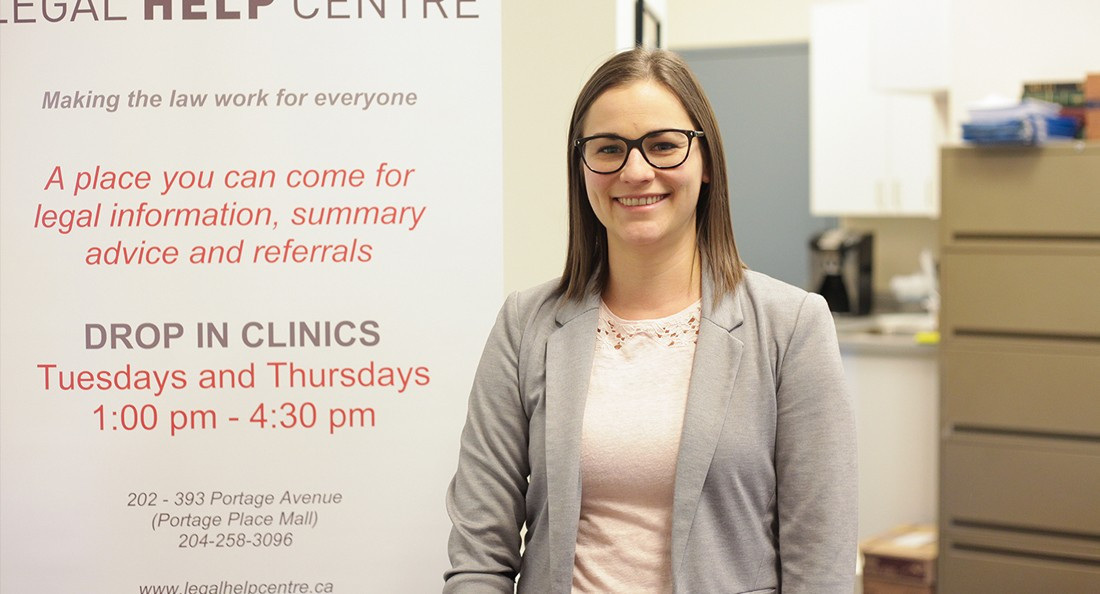Convenient contractual care
Legal Help Centre runs drop-in clinic
From 1 to 4:30 p.m. on Tuesdays and Thursdays, the Legal Help Centre (LHC) runs a drop-in clinic for those who need legal assistance but can’t afford a lawyer.
Paula Hamilton, the centre’s executive director, says the organization provides assistance for people whose household income is under $50,000.
Danielle Magnifico, the LHC’s articling student, says this means the LHC “capture(s) a lot of people who don’t qualify for legal aid but are still not making enough money to hire a lawyer. Also, legal aid typically does not do claims in the civil area of law, so we kind of bridge that gap a little bit.”
Magnifico says during one of the drop-in clinics, people in need of legal help can come to LHC's office at 202-393 Portage Avenue (Portage Place Mall) with or without any documents related to their questions and explain their situation to one of the LHC’s students.
The student takes notes and then confers with one of the LHC’s lawyers. They then return to the client with the lawyer’s advice. Magnifico says the whole process typically takes about 45 minutes, not including wait time.
While the LHC can’t represent its clients in court, they can provide clarification on legal processes, give advice and connect their clients with support resources.
For example, Hamilton says about 60 per cent of the questions they get at the clinics relate to family law, so the client might be referred to the LHC’s more specialized family law clinic where clients can get help with things like drafting documents and completing forms.
“Often when people come in, they know what they want, they know their end goal, but often the process of getting to that end goal is kind of foreign to them, which is understandable,” Magnifico says. “The system can be very complicated.”
“The legal system can be complex and often deters people from engaging in process. We want to make sure the public knows what rights are and aren’t intimidated by lawyers and jargon,” Hamilton says.
“Sometimes people get info they can’t understand, such as newcomers unfamiliar with the terminology and system or people with mental health issues who need legal support as well as referral for resources to help them better manage their life.”
Magnifico says this ability to help and guide is what makes the LHC a unique legal support entity.
“We capture such a variety of issues at the drop-in clinic that a person can really come in with so many types of concerns and be able to get information on the different options they might have, something that I don't think someone could just find from looking on the internet,” she says.
Published in Volume 73, Number 13 of The Uniter (January 10, 2019)







